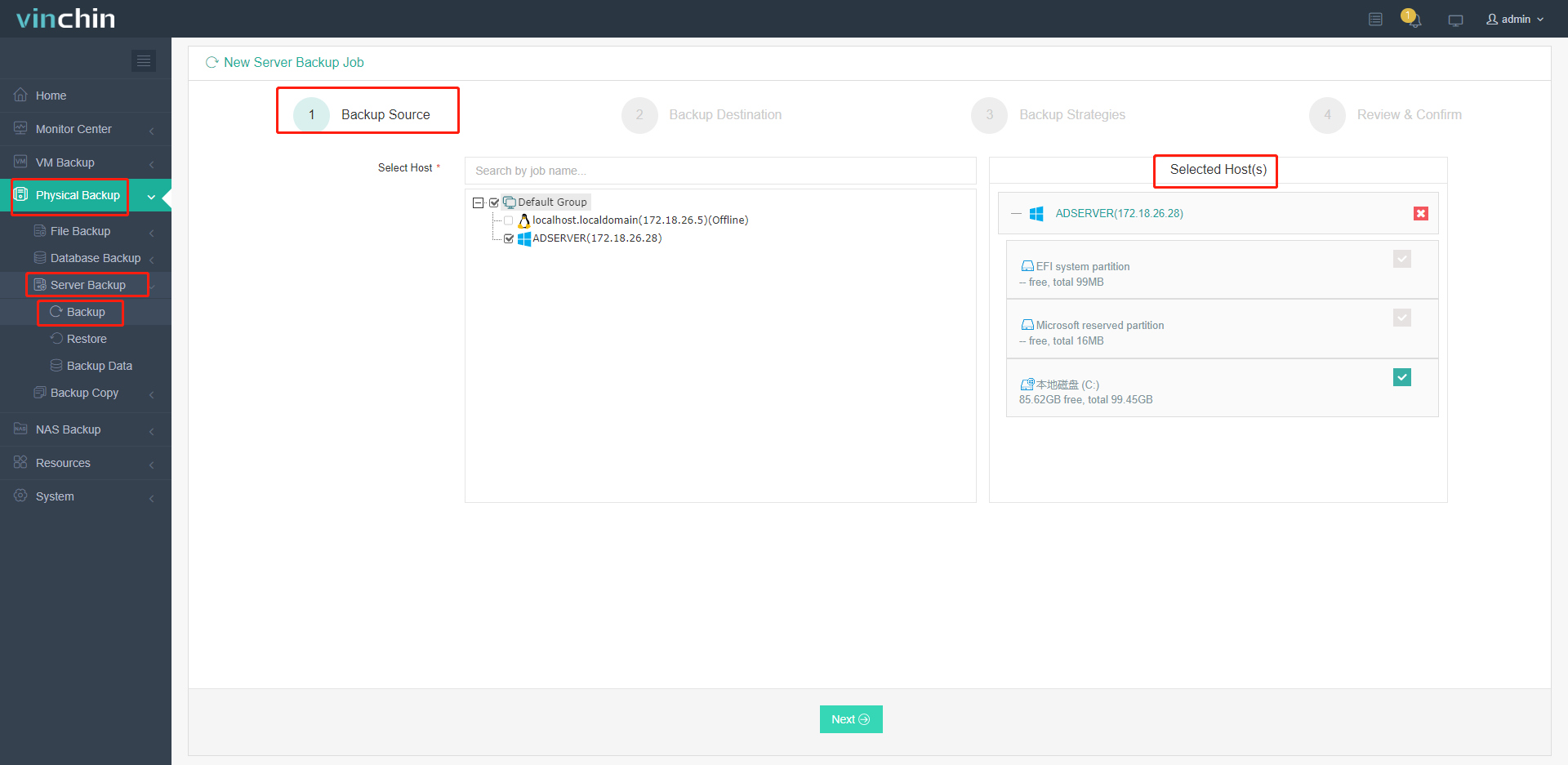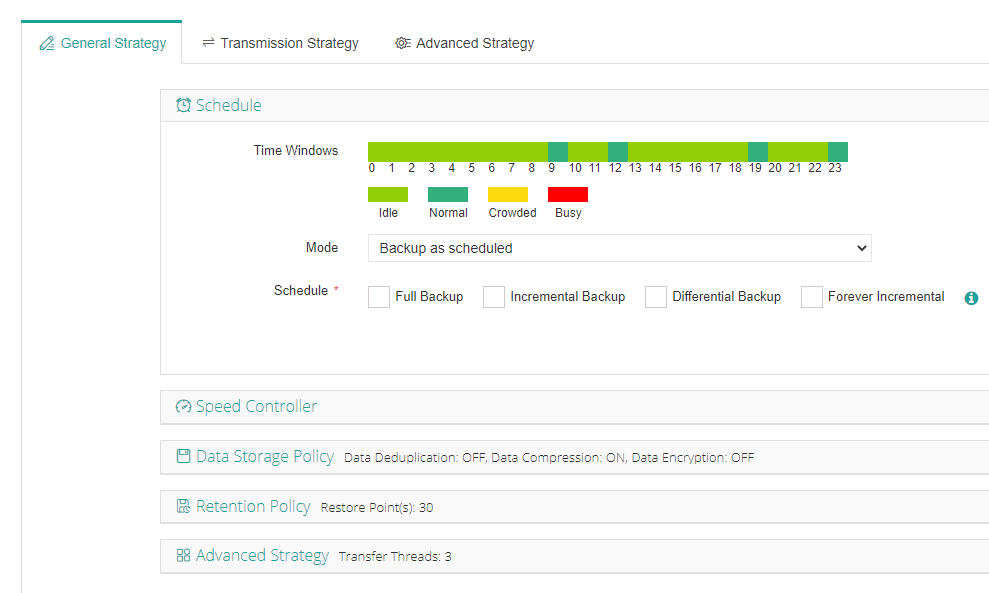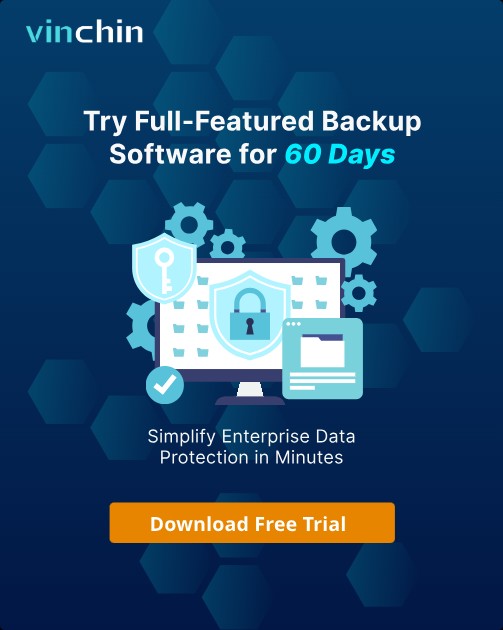-
What is Veeam Agent?
-
Why choose a Veeam Agent alternative
-
Method 1: Using Duplicati as a Veeam Agent alternative
-
Method 2: Using Bacula as a Veeam Agent alternative
-
How to Back Up Physical Windows or Linux Servers with Vinchin Backup & Recovery
-
Veeam agent alternative FAQs
-
Conclusion
Looking for a Veeam Agent alternative? You’re not alone. Many IT admins want a backup solution that's simple, reliable, and cost-effective—especially for physical Windows or Linux servers. In this guide, we’ll explain what Veeam Agent is, why you might want an alternative, and walk you through two popular open-source options. We’ll also show you how to back up your physical machines with Vinchin, a modern enterprise-grade solution.
What is Veeam Agent?
Veeam Agent is a backup tool designed to protect physical Windows and Linux machines. It creates image-based backups, allowing you to restore entire systems or individual files. Veeam Agent is often used alongside Veeam Backup & Replication, which is more focused on virtual environments. While Veeam Agent is powerful, it can be complex to set up and manage, especially for smaller teams or those with mostly physical servers.
Why choose a Veeam Agent alternative
Why look for something different if Veeam Agent is so popular? For many, it comes down to cost, complexity, and support for physical servers. Veeam’s licensing can be expensive, especially for small businesses. Its interface and setup process can be overwhelming, with a steep learning curve and multiple services to install. Some users also report that Veeam’s features for physical server backup are less robust than for virtual machines. Security concerns, such as past vulnerabilities, have also made some admins cautious. If you want a simpler, more affordable, or more flexible solution, exploring alternatives makes sense.
Method 1: Using Duplicati as a Veeam Agent alternative
Duplicati is a free, open-source backup tool that works on Windows, Linux, and macOS. It’s designed for file-level backups, not full system images, but it’s easy to use and supports many storage options—including local drives, FTP/SFTP/WebDAV—and popular cloud providers.
To back up a physical server with Duplicati:
Download and install Duplicati from the official website.
Open the Duplicati Web UI in your browser.
Click Add backup and choose Configure a new backup.
Enter a name and optional encryption password for your backup.
Select the files or folders you want to protect.
Choose your backup destination (local folder/network share/cloud storage).
Set your backup schedule and retention policy.
Review settings and click Save.
Click Run now to start your first backup.
Duplicati encrypts data before sending it out; restores are easy via web interface. However—it’s best suited for file-level protection rather than full bare-metal recovery.
Method 2: Using Bacula as a Veeam Agent alternative
Bacula is an enterprise-grade open-source backup solution supporting both physical/virtual machines plus databases/cloud storage. It offers flexibility/security but has a steeper learning curve than Duplicati.
To back up a physical server with Bacula:
Install Bacula Director, Storage Daemon, & File Daemon (client) on relevant servers.
Edit bacula-dir.conf to define jobs/clients/filesets/schedules.
Edit bacula-fd.conf on client(s) to allow Director connections.
Edit bacula-sd.conf to configure storage location(s).
Start Bacula services everywhere.
Use bconsole CLI tool: type
run, select job/confirm/run job.Monitor progress in bconsole/logs.
Bacula supports full/incremental/differential backups plus deduplication/encryption/cloud integration; restores are managed via bconsole by selecting files/directories needed.
How to Back Up Physical Windows or Linux Servers with Vinchin Backup & Recovery
For organizations seeking robust protection of their Windows or Linux servers—including platforms like Windows Server editions (2012–2022), Ubuntu LTS releases, RHEL/CentOS/Rocky Linux/Oracle Linux/SLES/Debian—Vinchin Backup & Recovery stands out as an enterprise-grade solution supporting most mainstream operating systems in both physical and virtual environments. This platform delivers real-time protection through Continuous Data Protection (CDP): continuously replicating data from production machines to standby nodes while monitoring heartbeat signals; if the primary machine fails unexpectedly it automatically triggers failover so workloads continue seamlessly—then synchronizes changes back once the original recovers.
Vinchin Backup & Recovery empowers administrators with advanced policy controls including forever incremental backups using Changed Block Tracking (CBT), built-in compression/deduplication technologies for space efficiency; instant restore/migration of data disks; throttling policies; automatic reconnection mechanisms; multi-threaded transmission; plus bare-metal recovery capabilities—all streamlining operations while maximizing reliability across diverse infrastructures.
The intuitive Vinchin web console makes protecting your infrastructure straightforward in just four steps:
1. Select the Windows server you want to backup.

2. Choose the storage location for the backup.

3. Configure your backup strategy (schedule, retention, etc.).

4. Submit the job.
Recognized globally by thousands of enterprises—with top ratings from industry analysts—Vinchin Backup & Recovery offers all features free during its 60-day trial period: click below to download today!
Veeam agent alternative FAQs
Q1: Can I migrate from Veeam Agent to Duplicati without losing backups?
A1: No—you must create new jobs in Duplicati; existing backups aren’t compatible.
Q2: Does Bacula support both Windows and Linux physical servers?
A2: Yes—agents exist for both platforms.
Q3: How do I restore a single file with Vinchin?
A3: Go to Restore > select desired backup > pick file > click Restore.
Conclusion
Choosing a Veeam Agent alternative depends on your needs and skills. Duplicati is simple/free for file-level jobs; Bacula brings enterprise power/flexibility if you’re comfortable editing configs/scripts; Vinchin provides modern all-in-one protection across both physical/virtual workloads—try its 60-day free trial today!
Share on:






